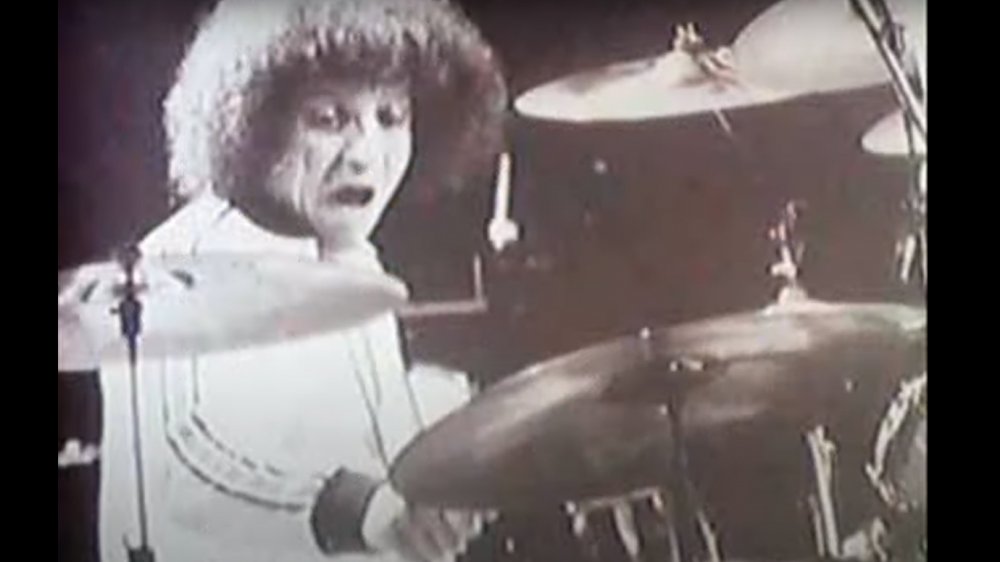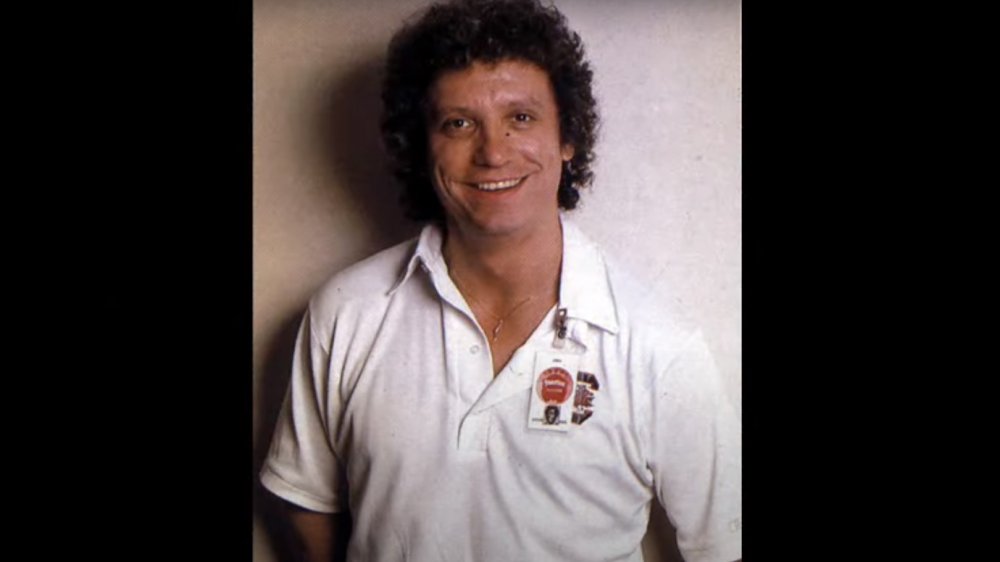The Tragic Death Of Styx's John Panozzo
Some kids seem to know, really know, from an incredibly young age just what they want to be when they grow up. Something other than, say, a cowboy, or an astronaut, or a ballerina. In John Panozzo's case, it was drumming. He really wanted to learn how to drum, and in 1982 told Modern Drummer that he started at age 8, tutored by an uncle who helped shape his style and discipline that eventually resulted in Styx, a legendary arena-rock band of the 1970s and '80s.
The work paid off. He spent five years perfecting his craft with only a practice pad. By the time he was 12 he had joined the musicians union. Drummer Panozzo, working with his fraternal twin brother, Chuck, on bass, and Dennis DeYoung on vocals and keyboards, became a rising and influential presence in American rock music, starting in their hometown of Chicago, then moving throughout the Midwest. Styx hit the very big time in 1975 with the release of their single "Lady" and four consecutive triple-platinum albums — "platinum" indicating sales of 1 million copies. Styx was a band that could fill an arena to overflowing with fans.
Born in Chicago, and died there, too
As a founding member, Panozzo continued to play throughout Styx's years of remarkable success. The band began to break up in 1983, but reunited in 1990 with release of "Edge of Country." A successful tour followed the next year.
Styx was on a popular 77-city tour in 1996 with most of the original lineup, but Panozzo was unable to join them because of "poor health," according to UPI. The unfortunate truth was that Panozzo, like many rockers, had been struggling with alcohol abuse for years, and it finally caught up with him. On July 16, 1996, Panozzo was found dead in his Chicago home, victim of a gastrointestinal hemorrhage, according to the Cook County Medical Examiner's Office. He also had suffered from cirrhosis of the liver as a result of chronic alcoholism. According to his obituary in the New York Times, he was just 46 years old.
"Musicians are known to be sensitive people," he told Modern Drummer. "People will tear you down and say you're no good and you're not going to happen and you're never going to go anyplace. The way I look at it: They're afraid — they're afraid for themselves. That's the easiest thing to do — to tear down. It's tough to build up. If you have a dream, you have to go for it." And he did.

